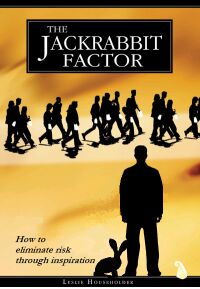In my last entry, I cited a case in which blogging had been at least tangentially helpful to aiding a blogger in getting a new job.
Others have noted the benefits of blogging for career success, as in this piece by Tim Bray:
Ten Reasons Why Blogging is Good For Your Career
You have to get noticed to get promoted.
You have to get noticed to get hired.
It really impresses people when you say “Oh, I’ve written about that, just google for XXX and I’m on the top page” or “Oh, just google my name.”
No matter how great you are, your career depends on communicating. The way to get better at anything, including communication, is by practicing. Blogging is good practice.
Bloggers are better-informed than non-bloggers. Knowing more is a career advantage.
Knowing more also means you’re more likely to hear about interesting jobs coming open.
Networking is good for your career. Blogging is a good way to meet people.
If you’re an engineer, blogging puts you in intimate contact with a worse-is-better 80/20 success story. Understanding this mode of technology adoption can only help you.
If you’re in marketing, you’ll need to understand how its rules are changing as a result of the current whirlwind, which nobody does, but bloggers are at least somewhat less baffled.
It’s a lot harder to fire someone who has a public voice, because it will be noticed.
Now, along comes a screed by the pseudonymous Ivan Tribble in the Chronicle of Higher Education questioning the concept of blogging for those in academia who are in the search or plan to seek tenure-track teaching positions. Tribble’s words are a bit worrisome to me since I will soon be in the academic job market.
Tribble particularly questions why academics feel they must broadcast “unfiltered thoughts to the whole wired world.” He doesn’t like the fact that blogs are sometimes used as “therapeutic outlets” and venues “to vent petty gripes and frustrations.” To Tribble, a blog often degenerates into an “open diary or confessional booth, where inward thoughts are publicly aired.”
Tribble is particularly incensed that blogs allow the publication of a great deal of material without the peer-review process that is the heart and soul of academic publishing. Granted, the whole issue of electronic publishing without peer review is a hot button in the academic world. Both my partner and I count among our publications more than 100 articles apiece that are published online but were not peer-reviewed (except by each other). How will those articles be viewed as he applies for full-professor status this year and I seek my first post-PhD teaching position?
But back to blogging — Tribble cites several candidates who applied for teaching positions at his college who were hurt by their blogs (though he does admit that “we did not disqualify any applicants based purely on their blogs. If the blog was a negative factor, it was one of many that killed a candidate’s chances”).
The candidates’ blogging sins seemed to be as follows: One guy seemed to be far more passionate about a side interest or hobby than he was about the subject he was applying to teach. Another had a blog with numerous personal opinions that Tribble felt revealed a little more about the candidate than the search committee wanted to know. A third guy had misrepresented his research, a sin exposed not by his own blog but someone else’s.
These are all legitimate concerns, but they don’t say to me “don’t blog if you know what’s good for your career.” They simply say: Be careful. I can’t see, for example, similar concerns being raised by the authors of the blogs I cited in this entry, PhD students, like myself, who are using blogs to explore their research topics and whose blogs may document the narrative of our PhD programs. To me, Tribble’s concern below borders on paranoia:
The content of the blog may be less worrisome than the fact of the blog itself. Several committee members expressed concern that a blogger who joined our staff might air departmental dirty laundry (real or imagined) on the cyber clothesline for the world to see. Past good behavior is no guarantee against future lapses of professional decorum.
And the way Tribble ended his column (below) just made me sad. People who seem perfectly OK when you talk to them, but they are somehow diminished when you get to know them better through the narratives of their blogs? I think we will see more and more people telling their stories very publicly in media such as blogs. Tribble should probably get used to this new reality.
Our blogger applicants came off reasonably well at the initial interview, but once we hung up the phone and called up their blogs, we got to know “the real them” — better than we wanted, enough to conclude we didn’t want to know more.
 Today I met Richard (Rick) Stone, founder of The StoryWork Institute. I was excited a couple of months back to discover that this pioneer of the organizational storytelling movement lives only about 40 minutes from me. He discovered storytelling in 1989 and has been using it in his consulting, speaking, and writing practice since. He was quite gracious when my partner and I met him for coffee — in light of the fact that we were embarrassingly late!
Today I met Richard (Rick) Stone, founder of The StoryWork Institute. I was excited a couple of months back to discover that this pioneer of the organizational storytelling movement lives only about 40 minutes from me. He discovered storytelling in 1989 and has been using it in his consulting, speaking, and writing practice since. He was quite gracious when my partner and I met him for coffee — in light of the fact that we were embarrassingly late!

